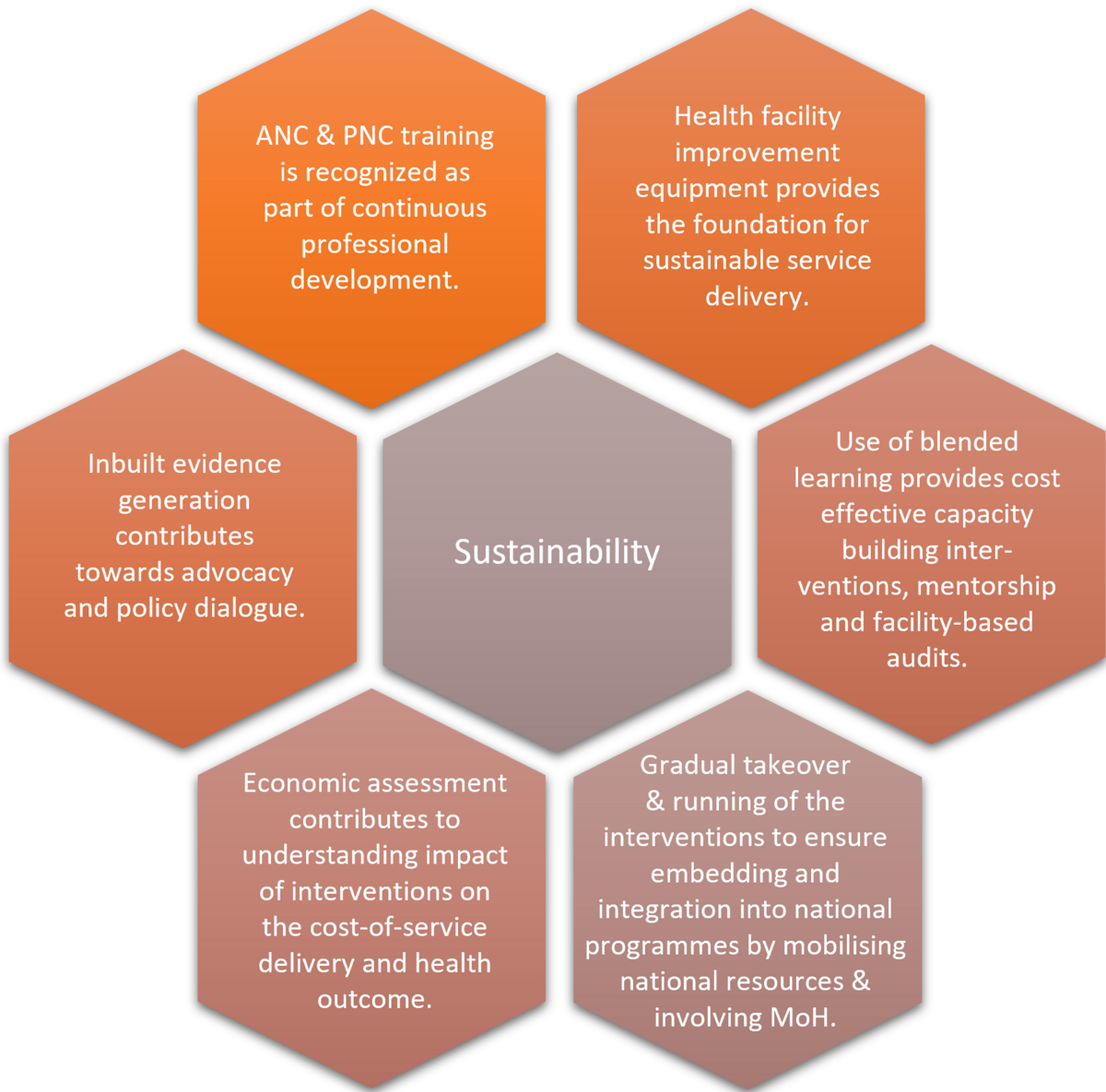To ensure the interventions are sustainable beyond the life of the programme the programme operates in partnership with MoH to deliver, institutionalize and integrate the health worker capacity strengthening tools and materials and increased capacity of master trainers and mentors within the systems for ANC and PNC, quality of care and mentorship. Any lessons learnt regarding the approach, contents and practicalities of the programme implementation are shared with MoH for guiding framework adaptation and review in regard to MNH and health systems strengthening.

The ANC & PNC training for health workers is recognized as part of continuous professional development. Health workers will be awarded points after attending the training.
The health facility improvement equipment will provide the essential equipment as a foundation for sustainable service delivery in the targeted health facilities.
The programme has an inbuilt evidence generation component to document the implementation of the QI measures. The expected outcome will contribute towards advocacy and policy dialogue on scale up and strengthening of MNH QI initiatives by the government at national and subnational level leading to sustainability of impact.
The programme uses cost effective capacity building interventions, mentorship of health workers and facility-based audits conducted by in house facility staff. Staff are trained using the blended learning approach. These approaches are sustainable beyond the programme period.
The economic assessment in Kenya will estimate the cost of providing capacity strengthening interventions and understand what the impacts of such interventions are on the cost-of-service delivery and health outcome.
For all activities national resources would be mobilised and MoH involved in gradually taking over the running of the interventions to ensure embedding and integration with national programmes (MCH and three diseases in particular) to provide sustainability and cost effectiveness.